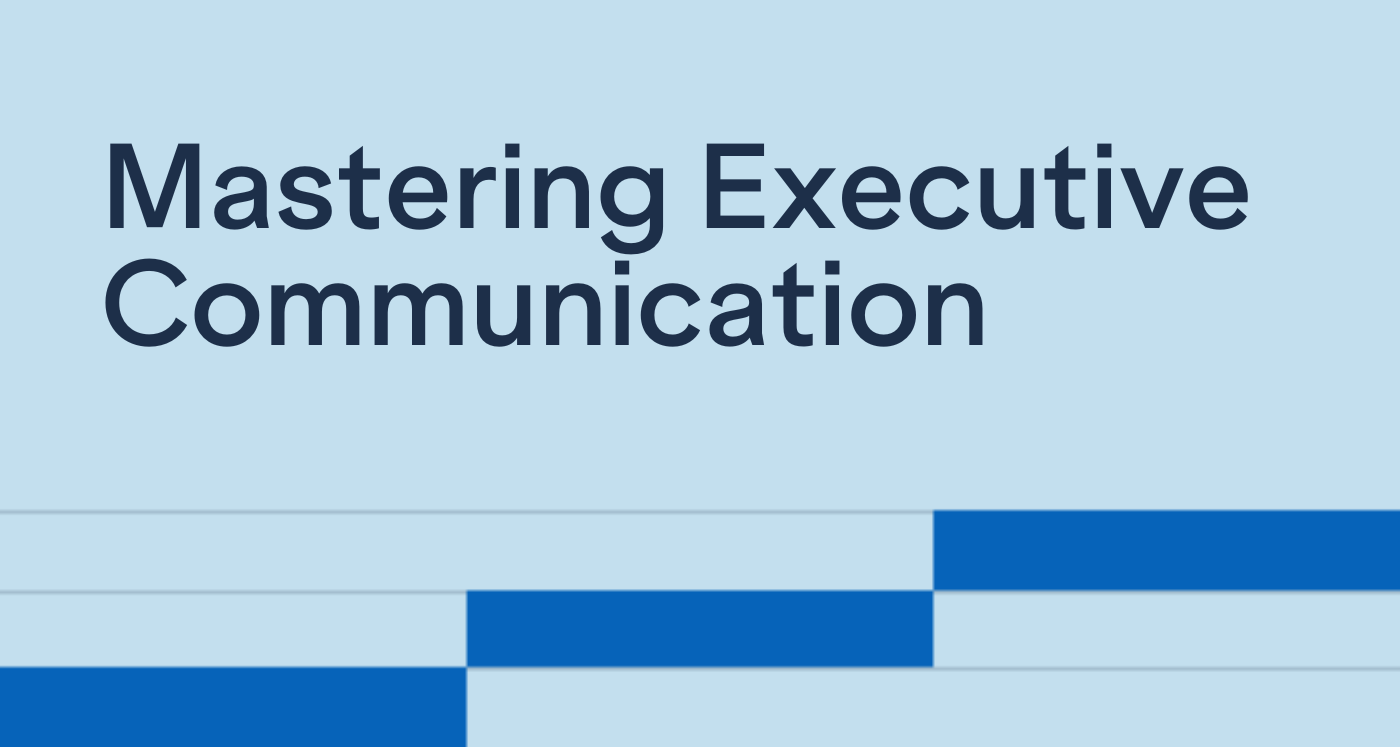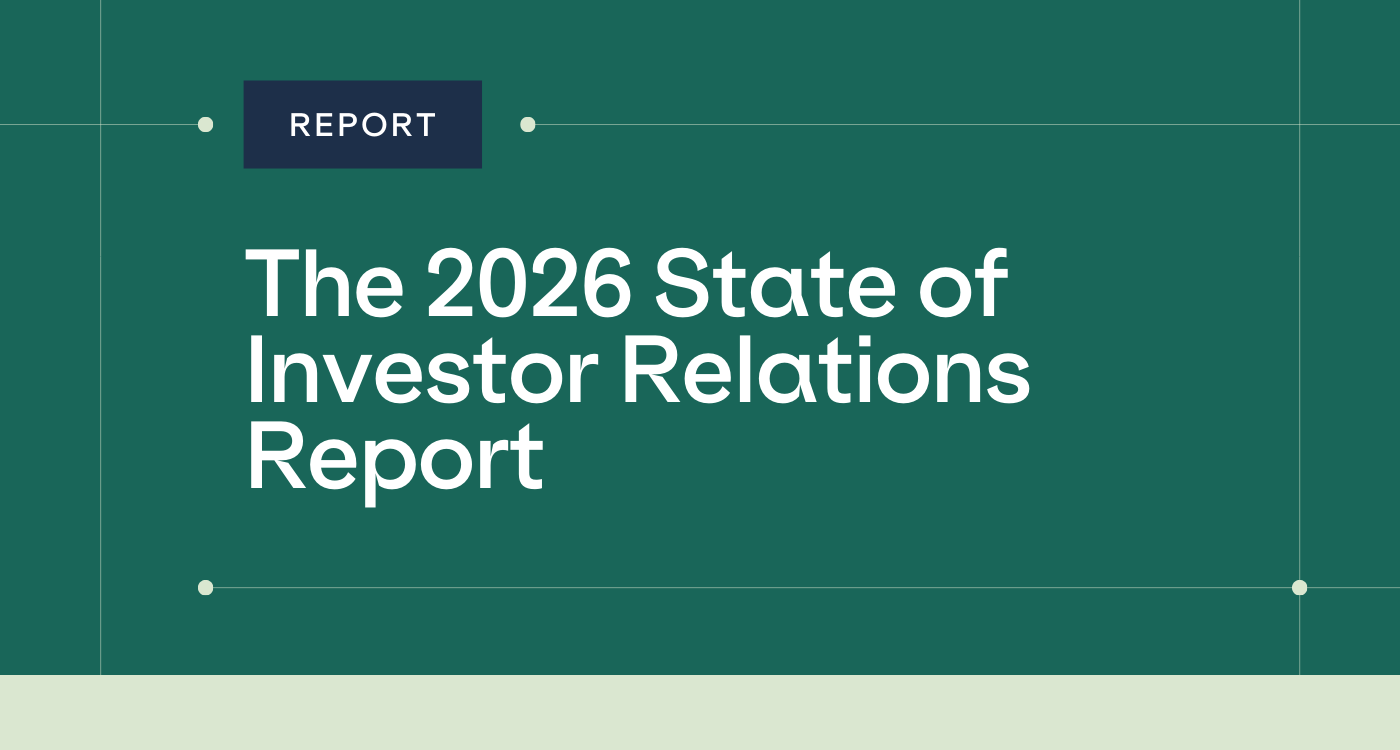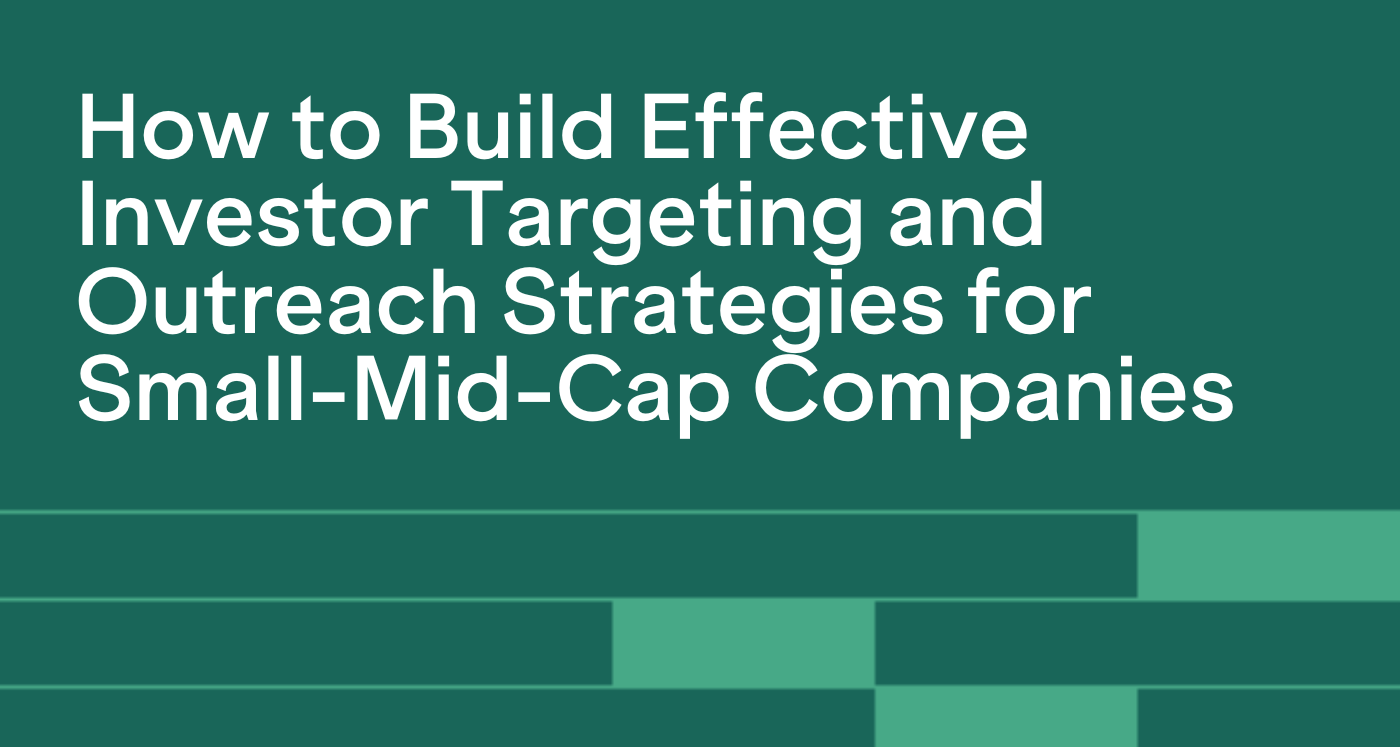
Mastering Executive Communication: Insights from David Calusdian on Effective Investor Relations
Effective investor relations extends far beyond crafting compelling messages. Learn how the experts deliver their story strategically.

Every year during March, women worldwide are celebrated for their contributions to history, culture, and society during Women's History Month. It's proven that companies with more women in senior positions are more profitable, socially responsible, and provide safer, higher-quality customer experiences.
As a woman in leadership, navigating your career, systemic barriers, motherhood, family and community responsibility, societal pressures, stereotypes, and expectations can be lonely. It’s necessary to create space and allyship through conversation and shared experience, inside and outside March, to effectively build equitable environments for women and those with multiple intersecting identities.
In our recent NIRI Webinar, I had the pleasure of sitting down with three exceptional women in Capital Markets to discuss their lived experiences and their best advice for women in the profession and women navigating corporate careers. The conversation sparked so many insightful and essential questions from the audience and is one step forward in building a community of women who can lean on and learn from each other in the space.
Rushmie Nofsinger, an accomplished Corporate Affairs Executive with over 20 years of experience, is currently the Vice President of Investor Relations and Corporate Affairs at Scholar Rock, an innovative biotech company working across therapeutic areas and shining new light on the overlooked to better target disease. Rushmie is also a certified coach and positive psychology practitioner through the Flourishing Center and is a mother to three girls.
Geri Weinfeld has over 20 years of experience in investor relations, corporate communications, banking, and finance and equity trading. She is currently the Vice President of Investor Relations at Snyk, a leader in developer security. Geri started her career as an equity trader who quickly bumped her head on a low ceiling and pivoted to IR in an agency role before moving in-house. She is passionate about building engaging ESG programs and elevating DE&I at the companies she has worked with.
Meaghan Montegari has a diverse resume spanning institutional equity sales and over a decade in corporate access and is currently the Managing Director, Head of Global Investor Access at ICR. On top of being a source of guidance and expertise for shareholder targeting and analysis, Meaghan has balanced achieving her career goals while being a mother of four.
There was so much insight from this panel and conversation, bringing diverse perspectives and shared experiences regarding being a woman in capital markets. I'm privileged to share some advice from such an important conversation to continue progressing women working in capital markets.
According to Mckinsey’s annual Women in the Workplace research, women leaders want to advance. Still, they face stronger headwinds than men - they experience microaggressions that undermine their authority and signal that it will be harder for them to advance. We end up with the “broken rung," which highlights challenges at the first step up to manager for women.
All of our panelists have faced bias or headwinds during their career progression and shared example experiences during the panel.
When Geri started her career on the trading floor, she was young and didn't appreciate how challenging it was for women in the space to advance. Not for lack of trying, and as one listener asked – knowing when to continue fighting and where the fight is not worth the effort is vital to ensuring you end up in suitable supportive spaces. Geri transitioned into IR, where throughout her career, she has learned to speak up for herself, for other voices, and power through.
When Meaghan decided to have children, she faced high anxiety about its impact on her career prospects, as many women do. When the choice of pausing future growth or pushing forward to her goals came to a head, she focused on open communication with her manager, seeking advice and ultimately choosing to continue to go forward.
Rushmie pointed out that there were times when she would look around the room and realize there was a language that others were speaking that she didn't quite understand, which in turn caused self-doubt. Women must learn to develop and strengthen their voice, confidently understand their perspective's value, and know that their input is just as valuable as the men around the table.
While we would all love to have confidence in our expertise and the value we bring to conversations – it is a learned skill, especially for women. It's a muscle you have to build with intentionality and practice, and we've summarized some key takeaways and advice from the conversation:

Women are over-educated and under-promoted in IR, and the perceived characteristics of what makes a person successful in capital markets tend to reinforce the status quo of whiteness and masculinity as the normative culture. We asked for advice from the panelists that they would give to women entering capital markets or looking to grow their seniority or compensation when it comes to overcoming obstacles and bias:



Throughout your career, having a group of people who can provide you with counsel, both functionally and personally, is imperative for your growth. Finding mentors who can advise you, sponsors willing to advocate for you within your organization, and advisors who can support the more technical aspects of your role was a sentiment shared by the whole panel and can be extremely valuable to your growth.
Your board of directors can include peers, experts in your domain, former colleagues and superiors, and executive coaches to help you answer big questions.
Reaching out to people and asking them for their support can be as simple as sending an email, as it was in Meaghan's case. It helped her build foundational relationships with advisors she still has and leverages. Also, asking for the support of more senior executives, who can advise what they look for in high-performers, can illuminate a path to achieve your career goals.
A question from the audience sparked some insight about the challenges of meetings with investors, which in most sectors tend to be tables filled with men. Many firms have embarked on the ESG journey and are actively trying to increase representation, but significant headwinds still need to be addressed.
As the panelists noted, we're still very far away on Wall Street from balancing the mix, even with increasing demands on issuers to have more diversity in their businesses.
It needs to start with college and recruitment and an effort to maintain that diversity as seniority increases. And while progress may have started, there's a long way to go to truly see the shift, but as Meaghan pointed out:

Women have always advocated for themselves, and social catalysts like Lean In and the #MeToo movement have brought awareness and accountability to leadership. Still, allyship must be an active element within your business. Having Women's groups and DE&I committees is insufficient if the people who can bring change aren't listening.
In addition to joining those conversations and listening to the lived experiences of women and minority groups inside the business, it's also important to pay attention and build a culture of advocating in day-to-day moments.

The panelists shared their best advice for understanding company culture and your fit within it:

Our webinar sparked such a rich and important conversation. We're thankful to the panelists and NIRI for allowing us to come together and create space for women in investor relations and capital markets. We still have a long way to go to build true equity, but having access to community and sharing our experiences gets us one step closer.
You can access the webinar replay here.
Embracing Equity - Paving the Path to an Equitable Future for Women in IR

Effective investor relations extends far beyond crafting compelling messages. Learn how the experts deliver their story strategically.

Across geographies and market caps, one theme is consistent: IR is entering a period of recalibration. Learn what's changing in 2026.

Learn how seasoned IR veterans are executing targeting strategies for small-mid-cap companies.